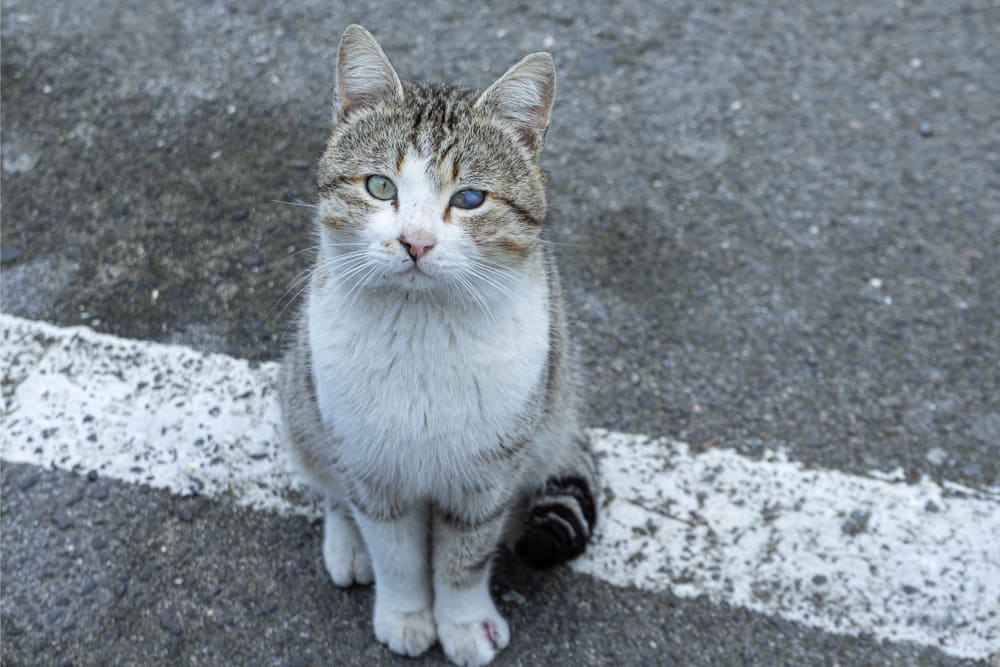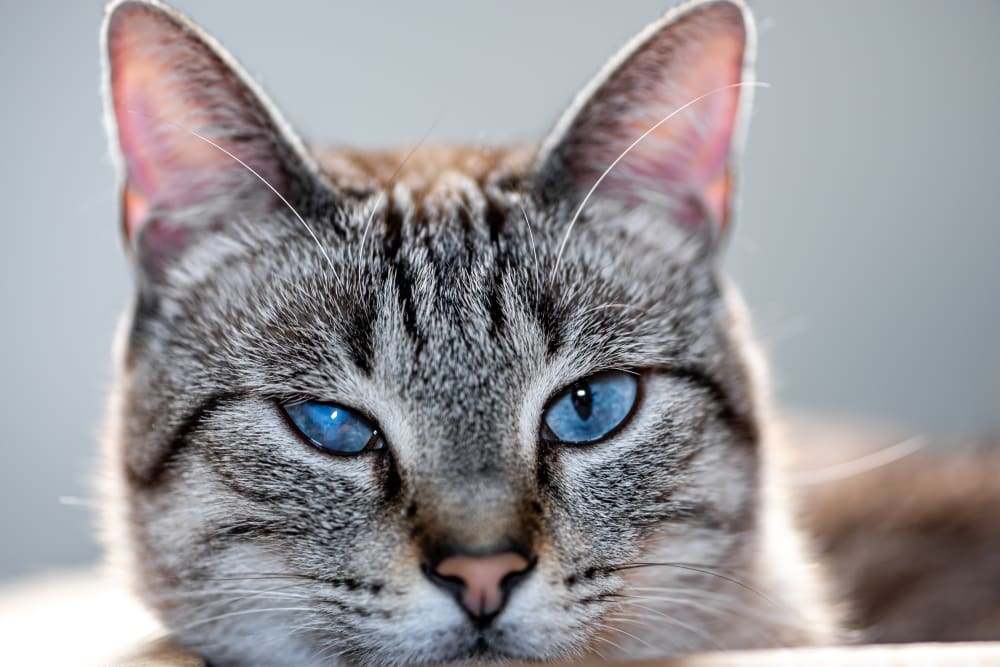
Are your cat's eyes beginning to appear cloudy and are you noticing other signs that their vision isn't great? Today, our Westfield vets share some important information about cataracts in cats, the causes and what can be done to treat this condition.
What are cataracts in cats?
If your cat is experiencing cataracts it means that the lens of their eye is becoming opaque and has a cloudy appearance. The lens, a structure within the eye composed of protein fibers encased within a capsule, is responsible for focusing light on the retina and allowing clear vision.
The lens in a cat's eye is typically clear but when they have cataracts this changes and the resulting cloudiness can prevent light from reaching the retina. Depending on how severe the cataract is, it can have significant impacts on the cat’s vision.
Cataracts can occur in cats of any age, sex, or breed. A genetic predisposition to inherited cataracts has been observed in Himalayans, Birmans, and British Shorthairs.
What are the causes of cataracts in cats?
There is no one cause when it comes to cataracts in cats. Any damage to the lens resulting from injury or illness can result in the formation of cataracts.
Causes of cataracts that have been described in cats include the following:
- Inflammation Within The Eye
- Genetic Or Hereditary Factors
- Trauma To The Eye
- Metabolic Diseases, Such As Diabetes Or High Blood Pressure
- Nutritional Imbalances
- Radiation Exposure
- Cancer
- Infections Such As Viral, Bacterial, Fungal, Or Protozoal
The typical cause behind cataracts in cats is inflammation which we commonly refer to as uveitis. This can occur as a result of several underlying disease processes. Uveitis can lead the body’s immune system to recognize the lens as a foreign material, contributing to the formation of cataracts.
What are the typical signs of cataracts in cats?
Typically, cataracts in cats are noted by the veterinarian during a routine wellness exam. These cats may not be showing signs of cataracts at home, because cataracts have not yet progressed to the point that they are affecting the cat’s vision.
It is important to note that not all hazy eyes are caused by cataracts. As cats age, the lens often develops a cloudy appearance due to an aging change known as nuclear sclerosis or lenticular sclerosis.
Below are a few pictures of cataracts in cats to show what this condition looks like:


How can cat cataracts be treated?
If your cat has cataracts then it is likely that your vet will recommend surgery to help restore their vision. This surgery involves breaking down and removing the cataract (a process known as phacoemulsification), then replacing the lens of the eye with an artificial lens.
For some cats experiencing severe complications with their cataracts, the option of surgery may not be available. Because there is no method of managing or slowing cataracts from developing or advancing, your cat will continue to experience the issue. Fortunately, cataracts are not painful and cats typically adjust well to blindness.
If your cat has cataracts and is suffering from the associated inflammation, your vet may prescribe corticosteroids or non-steroidal anti-inflammatory eye drops to help treat the inflammation. Even though these medications will not affect the actual cataract, it is important to control inflammation to prevent glaucoma (a potential complication of cataracts and inflammation of the eye). Glaucoma does not respond well to medical treatment and often requires the removal of the eye; therefore, medical treatment of feline cataracts is often focused on preventing secondary glaucoma.
Note: The advice provided in this post is intended for informational purposes and does not constitute medical advice regarding pets. For an accurate diagnosis of your pet's condition, please make an appointment with your vet.

